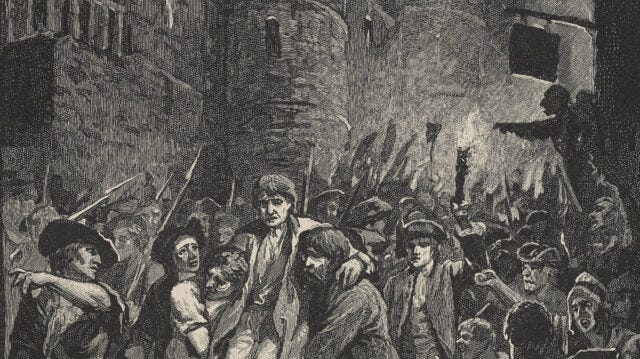The Will and The Geist (And Its Effects On History And Society)
two competing worldviews
Something can be said about the rivalry between Hegel and Schopenhauer, Schopenhauer hated Hegel but Hegel outright ignored him, and this be analyzed through the lens of social class. Upon deeper inspection their philosophies played to different attitudes, one was the philosopher of the rural peasant and working man, and other the philosopher of the elites and the state. Schopenhauer's philosophy of entropy becomes very potent in Oswald Spengler's conception of historical entropy, which the dying monarchy in Russia during the Russian civil war where the Russian Empire had fallen from a glorious past, in spite of Peter The Great attempts to modernize, in which there was a feudal structure, between the peasants and merchants who paid tribute to the clergy. And then, further down the line, by the 19th century there would be a new class of revolutionary students, rooted in nihilism from the existential crises of the late Romanov period, a product of what actually appeared to be an over-educated elite all of their own making (its worth noting that Schopenhauer once stated that complacency and boredom could very well lead to violence).
Some in Russia saw Peter The Great’s attempts to modernize as bowing to Western European pressures to accept science and reason which many Russians felt was a betrayal of rural peasant values, mostly notably found in the “Narodnik” movement of the 19th as a revival of counter-Enlightenment sentiment after the aforementioned modernization. Some could also see Russia opening up to the west as dangerously naive as it enabled Marxism to enter its lands, which ironically viewed the Slavic people as backwards savages (Karl Marx and Frederich Engels are both allegedly to have stated such things in writing). There can be parallels made between this and 1968 revolutionary movements and protests in France and Germany of a very anti-monarchical character, combining life destroying ideologies of feminism, anti-humanism, and extreme liberalism. These ideas were a product of the Francophone rhetoric of "Liberté, égalité, fraternité" that spread across Europe as Napoleon plowed through it with military might. historian and philosopher Edmund Burke was quick to call out these excesses right before Napoleon's campaign. Napoleon Bonaparte, no doubt, was inspirational to Hegel who almost saw him as the second coming of Christ and proclaimed him an embodiment of "world spirit", so its no wonder Hegel, with the help of Marx, is the choice philosopher for radical student revolutionaries who have an absolute distaste for the Old Regime.
In reaction to the highly speculative philosophy of Hegel after his death the neo-Kantians attempted to return to epistemic concerns rooted in observable truths, and here Wilhelm Dilthey disagreed with them on the place of psychology in the human sciences, the neo-Kantians believed psychology was part of the natural sciences, subjected to observation, Dilthey the human sciences as minds do not exist in a vacuum independently of society and history. In that essence he resembled Hegel, however he had a much more subjectivist account of the natural and human world and tore down the totalizing aspects of Hegelianism through a type of particularism. neo-Kantianism, on the other hand, sought to rescue philosophy from the realm of abstract speculation into observable empirical research, but in doing so divorced philosophy from human concerns, ethics and matters of life and death. neo-Kantians responded to this accusations by eventually adopting Schopenhauer's methodology on the crisis of meaning. Schopenhauer's philosophy set the tone for an age coping with the death of Hegel's world spirit in an age where the material sciences were gaining ground, paving the way for Spengler and those that followed in his wake, vindicating the bloody 20th century of endless conflict, tearing down the monarchies of Europe and disenchanting the world, as per Max Weber, by essentially turning divine right ruler-ships into secular republics, and then secular "democracies" in which the mob became the sovereign. Schopenhauer would not be pleased, and neither would Hegel.
-J./Adolf Stalin



